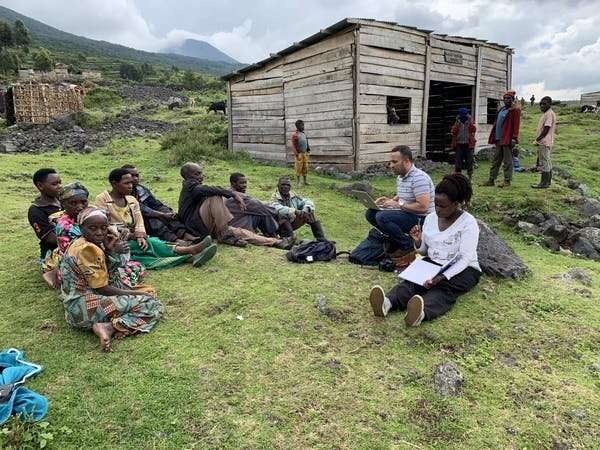Richer countries must do more to help those already experiencing the climate crisis

The climate crisis is not just about the future. It is a reality that many people, especially those living in low-income countries, already have to live with. As is well documented, global heating increases the risks of extreme weather events that threaten human lives and livelihoods. Some of these effects are already being seen.
Our research over the past two years, for example, has brought us into contact with indigenous communities in Uganda whose livelihoods are increasingly precarious as a result of unreliable weather.
We have also worked in informal settlements in Zambia where disease prevalence is accelerating as a result of climatic factors. Elsewhere, coastal communities are losing income and food due to storm surges that damage crucial infrastructures and homes. And inland agricultural communities are experiencing prolonged droughts. This affects the quality and quantity of crops and leads to water shortages that kill off livestock. That, in turn, causes food insecurity for millions of people, such as in the case of the decade-long drought in Kenya.
Droughts similarly create water shortages for poor urban populations, as we have seen in our work in Cape Town. Elsewhere in sub-Saharan Africa, increased rainfall is flooding latrines, contaminating drinking water and spreading diseases.
Meanwhile, among mountain communities the world over, retreating glaciers threaten water supplies that depend on seasonal glacial melt-off.
For these communities, adapting to climate breakdown – by, for example, improving water infrastructure and management, and diversifying income sources—is an immediate and pressing concern. To make matters worse, global inequalities have left the global south lacking crucial infrastructural and institutional development necessary to build resilience to climate breakdown.
Addressing injustice
Not nearly enough action has yet been taken. We can, at least, say that it is increasingly accepted that we must sharply reduce greenhouse gas emissions. But this doesn't go far enough. We also owe it to those communities already experiencing climate breakdown—often those who have done the least to contribute to the climate crisis but experience the worst of it—to help them adapt to the new reality. Our failure to do so constitutes an injustice that is currently inadequately recognised.
A major issue at the recent COP25 climate conference concerned who should pay for this adaptation and for the loss and damage compensation in lower income countries. It was agreed that countries that have benefited from industrialisation should take some responsibility for their historical role in driving climate breakdown. This responsibility, then, falls primarily—if not solely—on the affluent, industrialised nations of the global north. But the adaptation finance that has so far been provided by these countries has been insufficient, and has often failed to reach the most vulnerable communities.
In order to address this, countries that have signed the United Nations Framework Convention for Climate Change (UNFCCC), the main governing body for climate action, must actually uphold the commitments made in the Paris Agreement, which highlights adaptation and loss and damage compensation as equal pillars of climate justice alongside mitigation.
Such action might include a closer collaboration with development programmes all over the world to promote development for adaptation, as well as the continued allocation of UNFCCC resources towards adaptation initiatives.
Such initiatives should aim to build resilient infrastructures in ways that support socioeconomic equality, addressing both physical and social causes of vulnerability. They should also provide alternative and sustainable livelihoods for poor and climate vulnerable communities, such as those depending on fishing and farming. And they must protect existing ecological knowledge and practices, such as raised fields among indigenous farmers in the Bolivian Amazon, which are key to resilience.
Representing the most vulnerable
Another key element of this concerns representation. The voices of poor and marginalised communities are too easily lost in a climate debates in the global north. For more well-off countries, significant costs from climate breakdown are still mostly in the future, albeit rapidly approaching. And so that is how the climate crisis is predominantly viewed.
Sidelined voices need to be platformed more. Some progress have been made in this regard on an international level, with the creation of the Local Communities and Indigenous Peoples Platform (LCIPPP) as an advisory body to the UNFCCC. But such platforms are lacking at most national and local levels.
Building on this, it is necessary to create opportunities for climate vulnerable communities to be actively involved in formulating both global and local visions of climate justice. These visions must give equal consideration to their present experiences of living with climate breakdown and the need to facilitate adaptation not only in the future, but in the here and now.
In the case of the Batwa Indigenous Peoples of Uganda, we have found that national adaptation plans largely ignore the interests of marginalised groups like them. Sometimes, they even make their situation worse, or violate basic human rights. In an attempt to help them adapt to climate breakdown, the Batwa, for example, were forcibly relocated from their native lands in the rainforest to areas that, while having some access to infrastructure, lack proper housing and arable land.
In many lower income countries, climate breakdown is already bringing very significant costs. But for many in the global north, the worst is still to come, and much of the focus of climate action is still on mitigation. Somehow, perspectives need to change: the climate crisis is an issue of global and social justice.
Provided by The Conversation
This article is republished from The Conversation under a Creative Commons license. Read the original article.![]()




















